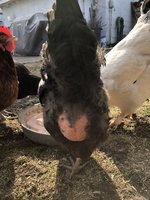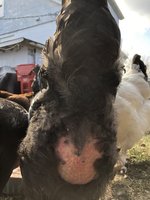im new at this and hope it gets easier, two days ago it thought that she was constipated, i followed all the advice that i have read about "egg bound " and constipated. she is up and moving , but her butt si still swollen and red, , , what can i do to bring the swelling down , oor should i just leave her alone, she is out running , but is still puffy
thnks
alib
thnks
alib





